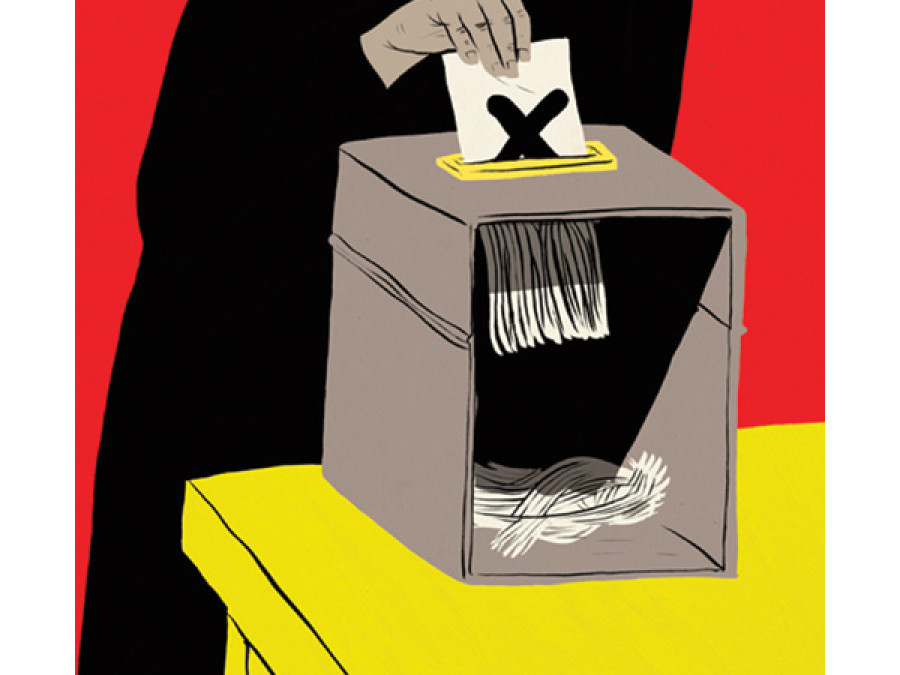Opinion
Bad timing
The Congress should have read the mood in Madhes before scheduling its convention
Randhir Chaudhary
The upcoming general convention (GC) of the Nepali Congress (NC) dominates newspaper headlines these days. It had originally been scheduled to be held last September, but the date was pushed back to March as the party was occupied with the constitution making process. The NC does not seem to have read the mood in Madhes before scheduling the grand event. If the decision makers in Kathmandu had once visited the place, they would have understood the chances of failure and success. Recently, a group of nine NC leaders visited the Madhes, and they have warned that the party will face difficulties in the coming days.
Congress and Madhes
Since the inception of the NC, its leaders have been claiming the Madhes to be the party’s bastion. The NC has always won the largest number of seats in Parliament from the Madhes. Whenever the NC holds its GC, party cadres and sympathisers complain why the party has always been reluctant to elect more central committee members from the Madhes. The NC is not bothered that the cadres in the Madhes feel that they are being treated only as a vote bank. Moreover, in the current scenario where the Madhes has been in ferment for more than four months, it has become very difficult for any party to hold any programme there. So it will be a tough task for the NC to bring all its GC representatives from the Tarai region and hold the 13th edition of the GC successfully.
Bajrang Nepali, an NC working committee member from Mahottari, said that as the GC was being organised when the Madhesis and Tharus have been protesting against certain provisions in the discriminatory constitution, it would be almost impossible for the party to meet the aims of the GC. He said that people in the Madhes were very angry with the NC for not protecting their interests in the new constitution when it was heading the government The NC has not fulfilled promises dating from the time of Bishweshwar Prasad Koirala. In the 1958 general election, Madhukar Babu Regmi had stood as a candidate from the Siraha constituency, which was a Madhesi populated area. Some Madhesis had asked BP if it was fair that Pahades (hill people) should fight the election in both the hills and the plains. BP replied, “Let Regmi fight from here this time, and I promise you next time that I will make a Madhesi candidate win from a hill constituency.” The promise has remained unfulfilled for the past 55 years. It shows that the Pahades in the NC do not want to make it inclusive geographically.
Intra-Congress disputes
Any political party can be truly democratic only when it involves leaders of all the regions in its decision-making process. Parties play an important role in a democracy. They not only share power in government, but also shape the country’s values through their work. Parties help integrate individuals and groups into society, transmit social and political values from one generation to the next, and harmonise the interests of diverse communities by providing channels of communication within society. However, the current trend among Nepali political parties shows that the leaders impose their decisions on the lower levels of the party hierarchy. The major parties do not care about ensuring representation from different communities. The NC is no exception. The so-called top leaders pass any decision without any consultation with the communities. For instance, before deciding the date of the GC amid the Madhes unrest, the party did not see it necessary to consult its district and regional leaders.
NC needs to be critical
Before rushing to the Madhes for the GC, the NC needs to address the grievances of its supporters there who are upset that the date was fixed without consulting local leaders. The party’s top leaders should have tried to win the confidence of the Madhesi NC leaders before passing the Constitution Amendment Bill which provides for creating electoral constituencies on the basis of population and proportional inclusion. The bill proposes to have at least one seat in each district. This means there will be 83 first-past-the-post (FPTP) seats in the Madhes out of 165 FPTP seats. The NC must offer a convincing solution to the issue of revising the provincial boundaries as this has become a very emotive issue in the Madhes where the people think that the major parties are trying to split the region into five provinces in a bid to weaken its political strength.
If the current standoff between the United Democratic Madhesi Front and the major parties and the government continues, the NC will end up regretting announcing its GC date. The level of anger in the Madhes is high after the promulgation of the constitution and the grave human rights violations. Even people from the major parties are not happy with the way the agitation has been handled. The Madhesis associated with the major parties too think that their parties do not care about their concerns.
Chaudhary is associated with Terai Human Rights Defenders Alliance




 14.12°C Kathmandu
14.12°C Kathmandu










